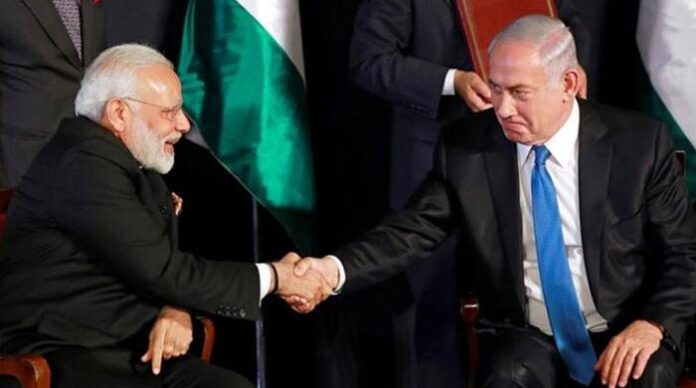The spring of 2025 witnessed two wars of aggression: India’s strikes in May against Pakistan and Israel’s attacks against Iran in June. The causes, trajectories and outcomes of the two wars were vastly different but there are similarities which deserve recognition and response.
One, both constituted a unilateral use of force in contravention of the UN Charter and international law. Two, both aggressions were undertaken on the basis of a false and ‘constructed’ casus belli.
Three, the underlying objective of both was to establish regional hegemony — in South Asia and the Middle East, respectively. Four, both aggressors are states that occupy, oppress and deny self-determination to occupied peoples — the Kashmiris and Palestinians, respectively.
Five, the extremist leaders of both states have expressed their hatred of Muslims (with the Israelis calling Palestinians “human animals” and the Indians calling them “cockroaches” and other epithets).
Six, both India and Israel encouraged each other in their respective aggressions. Seven, their modus operandi — sabotage, infiltration, disinformation, assassination, aerial strikes — are almost identical. Eight, most importantly, the two are military allies, supplying each other weapons, technologies, intelligence and operational support.
Although Pakistan has scrupulously refrained from becoming militarily involved in the Arab-Israeli and Iran-Israel conflicts, Israel has not reciprocated this restraint. Its role in assisting India’s occupation of Kashmir is no secret; Israel is one of India’s major arms suppliers.
Israeli drones were used to attack Pakistan in May. The Israeli prime minister is on record as stating that Israel’s targets are: “first Iran, and then Pakistan”.
It is now widely reported that Indian personnel in Iran were found to be acting as Israeli agents who enabled the targeted assassinations of Iran’s military commanders and nuclear scientists and the bombing of its nuclear and military facilities.
A few years ago, Qatar awarded death sentences to eight Indian naval personnel found to be spying for Israel. The extent of Indian-Israeli infiltration and malware in the Arab countries must be presumed to be extensive.
Pakistan must draw appropriate lessons from Iran’s experience and recent events. Among other steps, Islamabad must fully protect its strategic capabilities and facilities, ensure against hostile infiltration through intensive vetting of personnel and further enhance its defences against missiles, drones, electronic and other attacks at the sub-conventional, conventional and strategic levels.
It is also vital to guard against offering or accepting any concessions in future negotiations with India or others that could lead to compromising Pakistan’s strategic capabilities or its sovereign right to develop any capability essential to maintain full-spectrum deterrence.
As illustrated in the four-day war with India, Pakistan’s strategic cooperation with ‘iron brother’ China remains critical in ensuring sustained and credible full-spectrum deterrence and defence against India or other external threats.
This strategic cooperation must continue and extend to all areas of mutual security concern. The promotion of good relations with other powers should never be allowed to compromise this strategic relationship with China.
Pakistan and the entire Islamic world must take cognisance of this axis of oppression. There is already agreement that Israel must be held accountable for its genocide in Gaza. Any steps towards normalisation with Israel must be conditional on the creation of a Palestinian state.
Likewise, India too must be held accountable for its crimes in Indian Illegally Occupied Jammu and Kashmir (IIOJK) and its unilateral use of force against Pakistan. And the world community should be mobilised to convince
India to resolve the Kashmir dispute in accordance with UN Security Council resolutions and to abide by the Indus Waters Treaty.
In light of recent revelations, Arab and Muslim countries would be wise to review their cooperation with India, especially in the defence and IT sectors. They should build out the Organisation of Islamic Cooperation’s (OIC) security architecture — as proposed by Pakistan — to mobilise mutual support. The proposal for regional security arrangements, advanced by Iran, also deserves close consideration.
Finally, Pakistan and like-minded countries must act to rebuild the legal, political and moral defences against aggression and the unilateral use of force and advance the concept of equal and indivisible security for all states.
To this end, proposals could be advanced in the UN and elsewhere for the adoption of: a treaty reaffirming the principle of non-use or threat of force; the ME Nuclear Weapon Free Zone and the International Convention on Negative Security Assurances to non-nuclear weapon states (proposed by Pakistan).
The writer, a veteran diplomat, is a former permanent representative of Pakistan to the United Nations.
Disclaimer: The viewpoints expressed in this piece are the writer’s own and don’t necessarily reflect Geo.tv’s editorial policy.
Originally published in The News

